News ricochets off the surfaces of my body. It is attempting to open me up, slice my surprise and place it before the world, marinate it into acceptance. It smears its unhappy mug on my fingernails, enters my skin the way the evening enters a sarangi player’s inconspicuous mimesis. That is the only way I can let it in. My body is a walking echo of all the world’s cacophony.
How can a poet speak to the time? What face should I bring in this congregation of misfits, this masked melancholy choir wailing for their supper?
We slide between borders, carefully manoeuvring our insecurities through thin walls inert to the blasphemy of our presence. When we reach a quiet open place, we jump from one slab to the next, gleeful in the brief respite that allows air to kiss the soles of our feet hungry for land. But they must always return to the earth, like vagabond children fumbling towards their beds.
Many things are happening in this world. The squirrel came to my window again today, but I didn’t have anything to give him. It rained a couple of days ago, after the last post about rain (Thankyou, universe), and Delhi has slipped slyly into winter. In Jammu and Kashmir another exodus has begun, where thousands of migrant workers have flocked to bus stops and train stations fleeing from the targeted killings of non locals, in anger against the measures taken towards giving more power to “outsiders”, and compromising the safety and identity of the locals after the dilution of J&K’s special status in August 2019. In Bangladesh, people are dying as the homes of Hindus (the minority there) have been torched by violent mobs in response to rumours circulating of the fishermen from the local community “dishonouring religion”. The tensions had been rising already, but at least in that country it seems there is a leader with a spine, and a heart. Sheikh Haseena has assured the families that they will be protected, and has launched an investigation saying that the rioters will be ‘hunted down’. Meanwhile, in India our man is silent spectator to his minions trending #boycottfabindia because ‘why Hindu festival must be given muslim name’. Arre bhaaaai. Leave it. I do not think I need to dignify this circus with explanation.
I was thinking of all this today, and thinking of how the poet encircles the personal with the public, and the political? How can we live with dignity and curiousity, our rebellion intact, our sensitivity glowing like a firefly in the dark night of the times we live in? How can we nurture hope?
I turn to three poets. The excerpt below is from David Wojahn’s commentary on the work of Tomas Tranströmer, who, he claims, is having a conversation across realms, with the prodigy, John Keats. The Nobel Committee awarded its coveted prize in literature to the Swedish master Tomas Tranströmer "because, through his condensed, translucent images, he gives us fresh access to reality."
He did this for me today (gave fresh access to reality). His words are ringing still in the thirsty wells of my brooding mind. What Wojahn has to say about Tranströmer’s vision of the world is instructive:
“This is, I suppose, Tranströmer’s canny way of expressing Keats’s concept of negative capability. Tranströmer is certainly a man who, in Keats’s memorable phrase, is “capable of being in uncertainties, Mysteries, doubts.” And yet he differs from Keats insofar as he sees this state not as a goal for the poet to aspire to, but as inevitable—and inevitably anxiety-provoking. In fact, he sees this condition as our fate in contemporary society.
Despite this, Tranströmer is a poet of astonishment rather than dread; his forays into the unknown and the self-annihilating are ones from which the speaker always returns, relatively unscathed.”
-From David Wojahn’s Introduction to ‘Bright Scythe: Selected Poems by Tomas Tranströmer ’
Of the 4 poems that I have chosen I like ‘A Winter Night’ the best, and ‘A Sketch in October’ is apt. ‘Allegro’ has a startlingly surreal image at the end which is quite innovative, and music poems are always beautiful. ‘Lament’, speaks to me as a writer, and to this commentary.
These poems have been translated by Patty Crane
P.S. This is a free newsletter, and I hope to keep it that way. But…
If you like the work I’m doing here, do consider ‘buying me a coffee’
And of course, spread the word, forward these posts to friends and dear ones. And subscribe if you are seeing this anywhere else other than your inbox.

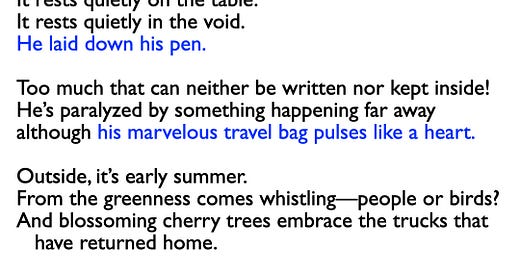


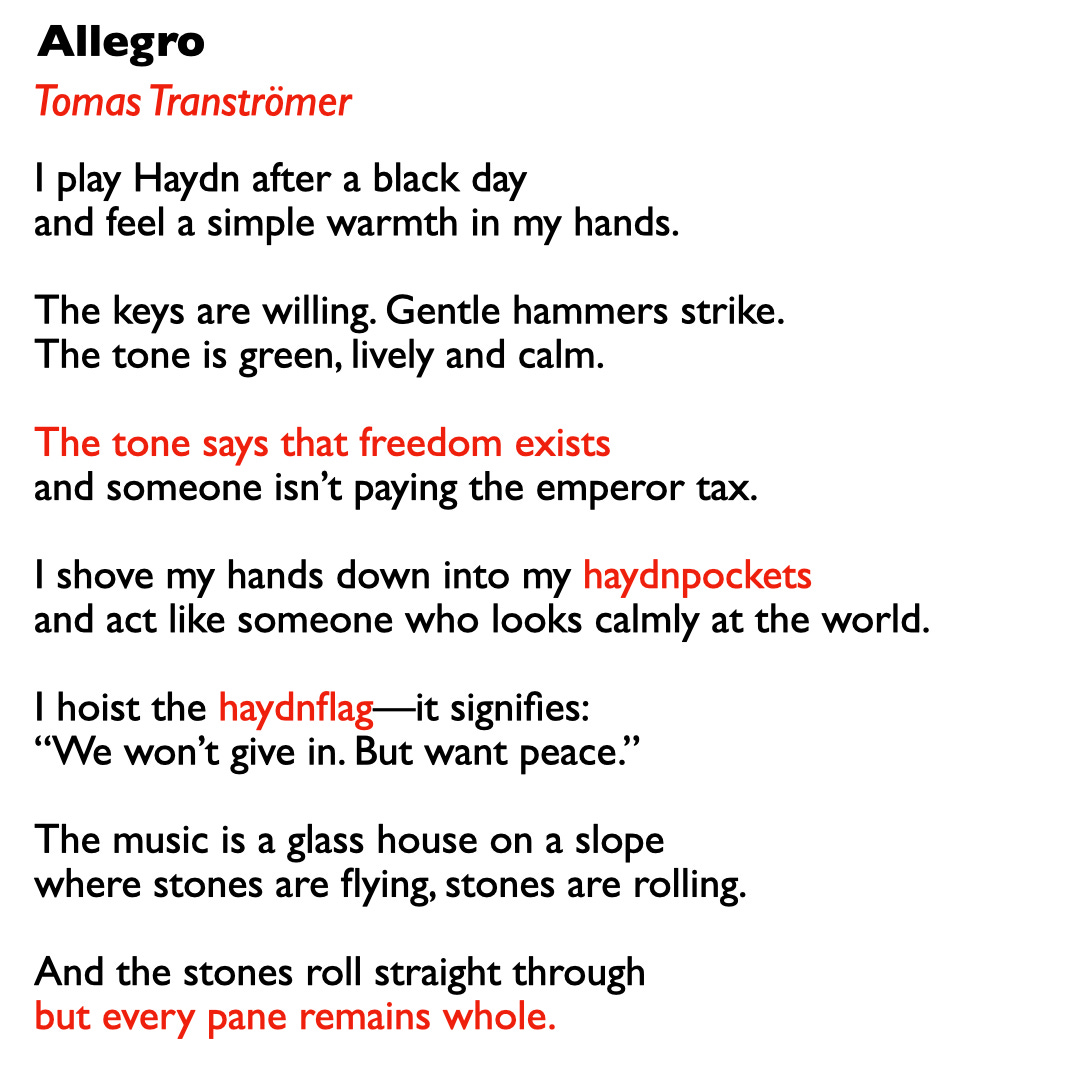
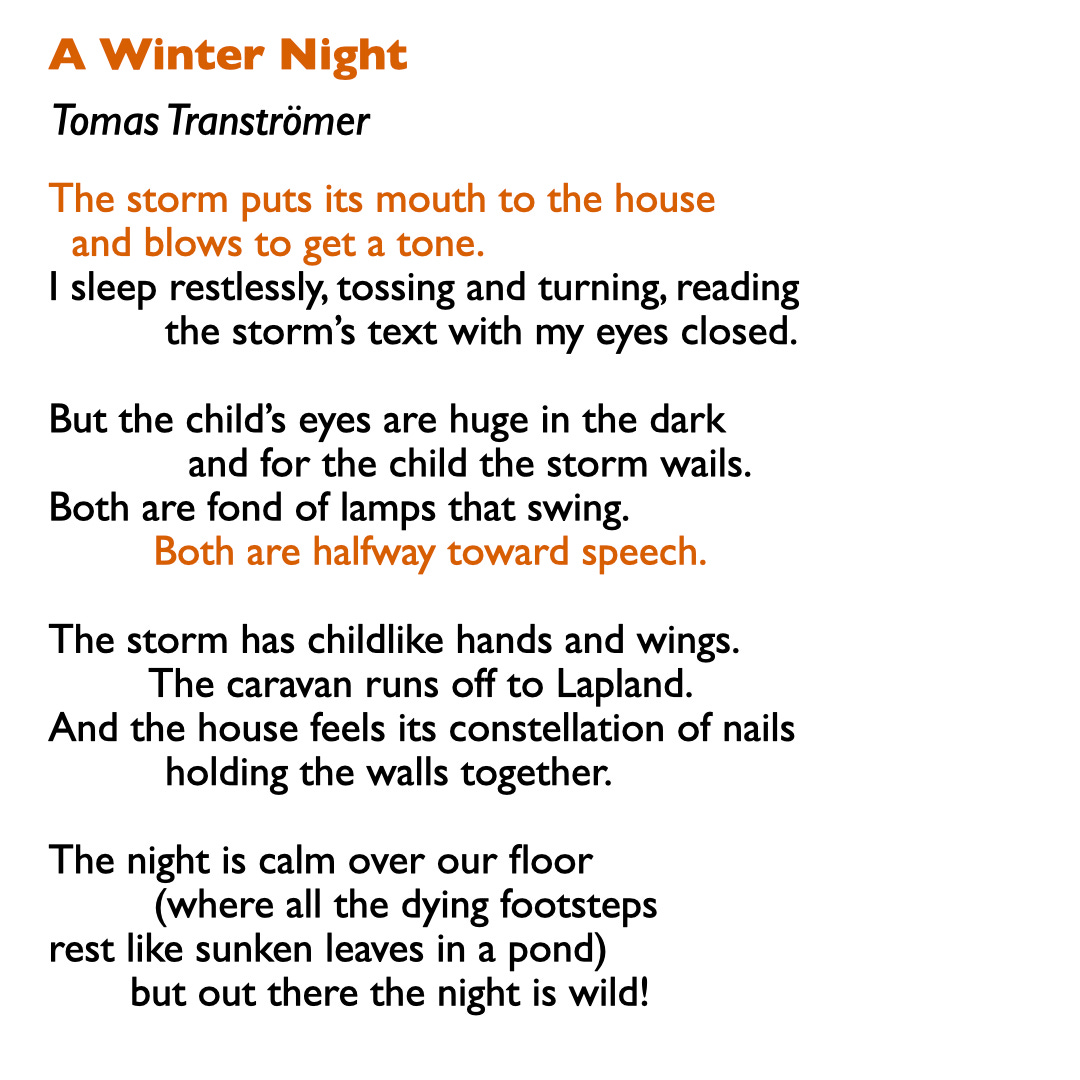
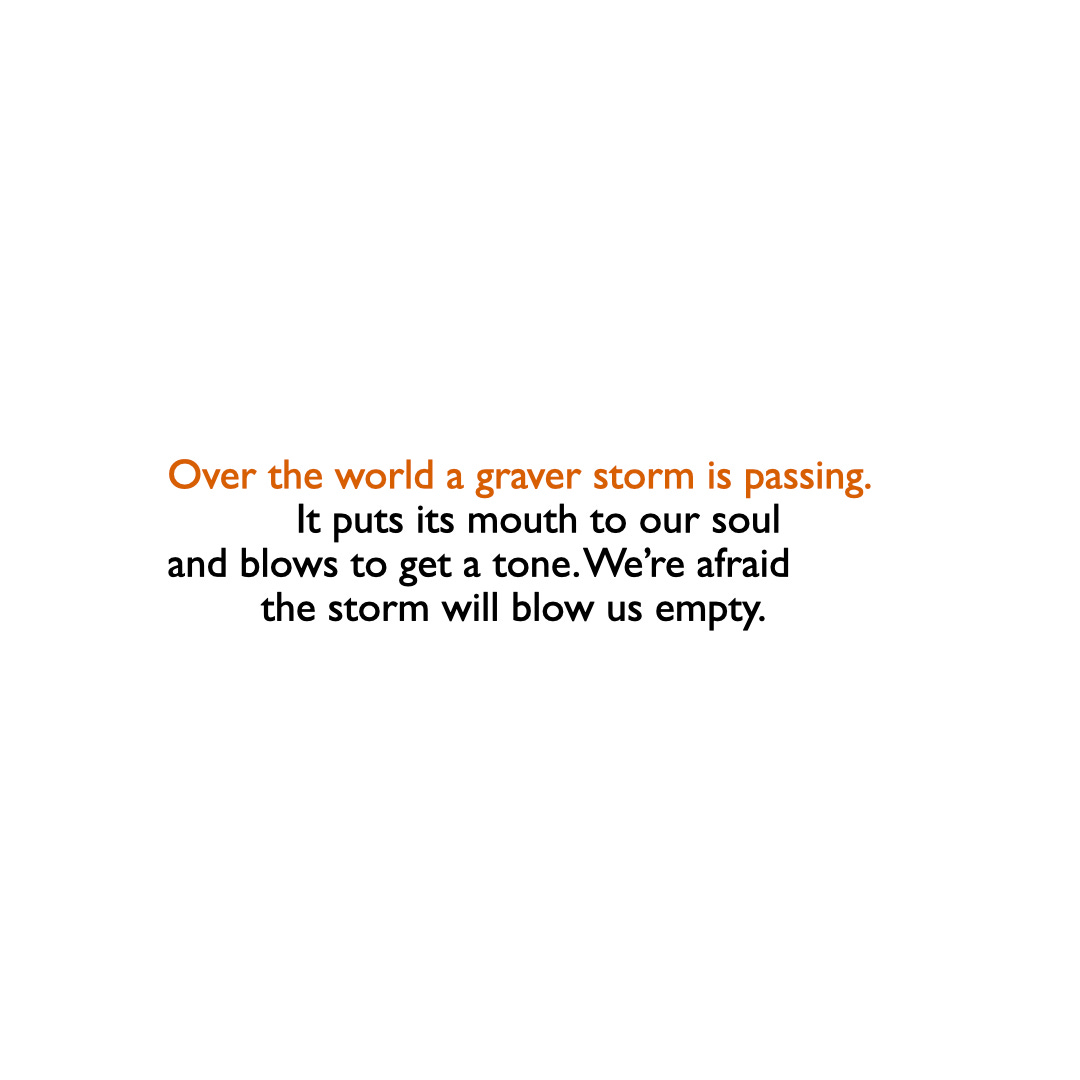
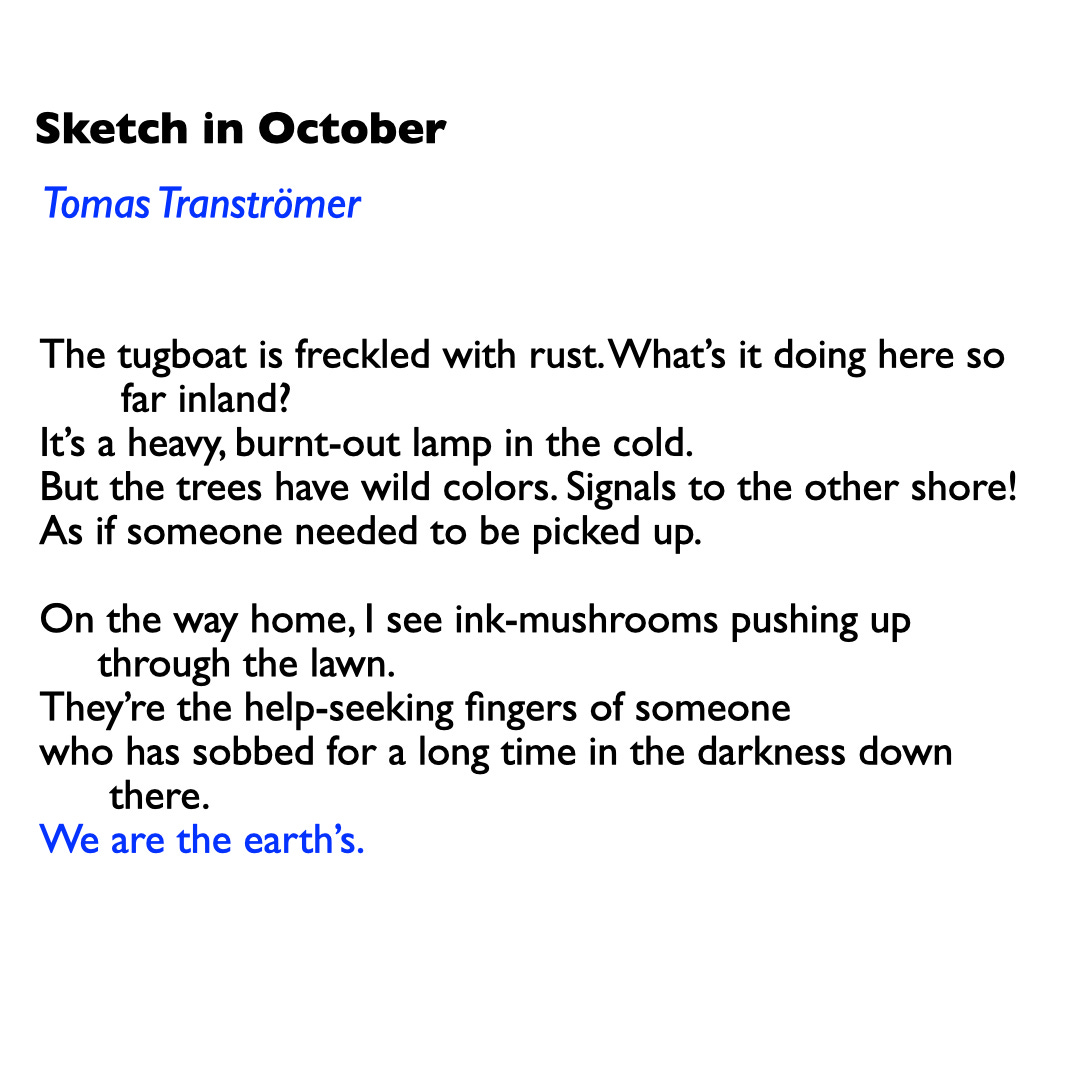
Wonderful poems and commentary - Thank you!